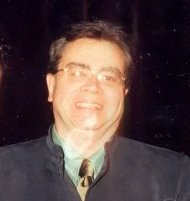
Samba is a name or prefix used for several rhythmic variants, such as samba urbano carioca, samba de roda, recognized as part of the Intangible Cultural Heritage of Humanity by UNESCO, amongst many other forms of samba, mostly originated in the Rio de Janeiro and Bahia states.

Francisco Manuel da Silva was a Brazilian songwriter and music professor, notable for composing the Brazilian National Anthem.

Francisco Paulo Mignone was one of the most significant figures in Brazilian classical music, and one of the most significant Brazilian composers after Heitor Villa-Lobos. In 1968 he was chosen as Brazilian composer of the year.
Ricardo Tacuchian, born in Rio de Janeiro, is a Brazilian conductor, composer and Doctor in Musical Arts (Composition) at the University of Southern California.

José Antônio Rezende de Almeida Prado or Almeida Prado was an important Brazilian composer of classical music and a pianist. On Almeida Prado's death, his personal friend, conductor João Carlos Martins stated that Prado had possibly been the most important Brazilian composer ever.
José Carlos Cocarelli is a Brazilian classical pianist resident in France. Born in Rio de Janeiro, he was a pupil of Adele Marcus and Merces de Silva Telles. He was awarded second prize on the 1984 Paloma O'Shea Santander International Piano Competition and on the 1989 Van Cliburn International Piano Competition. He won the Ferruccio Busoni International Piano Competition in 1985 and the Concours Long-Thibaud in 1986.
Paulo Costa Lima is a Brazilian composer and music theorist. A member of the Brazilian Academy of Music, Lima's main interest is the interaction between composition and culture, including its political aspects, namely composition as a way of resisting colonization and against the "waste of experience," the traditional circuit in which ideas (theory) are produced elsewhere and absorbed by the South. Lima's publications are on topics such as the theory and pedagogy of musical composition, analysis and history of Brazilian contemporary music, analysis of Brazilian popular songs, the possible dialogue between music and psychoanalysis, and cultural semantics. Lima's compositional interests include rhythmic tradition of the Candomblé.
Chôros is the title of a series of compositions by the Brazilian composer Heitor Villa-Lobos, composed between 1920 and 1929.
Roberto Ricardo Duarte is a Brazilian conductor, pianist, and musicologist, known particularly for his international promotion of Brazilian music.
João Guilherme Ripper is a Brazilian composer and conductor.

Luiz Heitor Corrêa de Azevedo was a Brazilian journalist, musicologist and folklorist.

String Quartet No. 16 is the penultimate of seventeen quartets by the Brazilian composer Heitor Villa-Lobos, and was written in 1955. A performance lasts approximately twenty minutes.

Chôros No. 7, subtitled "Settimino" (Septet), is an instrumental septet written in 1924 by the Brazilian composer Heitor Villa-Lobos. It is part of a series of fourteen numbered compositions collectively titled Chôros, ranging from solos for guitar and for piano up to works scored for soloist or chorus with orchestra or multiple orchestras, and in duration up to over an hour. Chôros No. 7 is of modest length, a performance lasting about eight-and-a-half minutes.

Chôros No. 10 is a work for chorus and orchestra written in 1926 by the Brazilian composer Heitor Villa-Lobos. It is part of a series of fourteen numbered compositions collectively titled Chôros, ranging from solos for guitar and for piano up to works scored for soloist or chorus with orchestra or multiple orchestras, and in duration up to over an hour. Chôros No. 10 is of moderate length, one performance recorded by the composer lasting just under thirteen minutes.

Chôros No. 12 is an orchestral work written between 1925 and 1945 by the Brazilian composer Heitor Villa-Lobos. It is part of a series of fourteen numbered compositions collectively titled Chôros, ranging from solos for guitar and for piano up to works scored for soloist or chorus with orchestra or multiple orchestras, and in duration up to over an hour. Chôros No. 12 is one of the longest compositions in the series, a performance lasting about 35 minutes.

Chôros No. 6 is an orchestral work written between 1925 and 1942 by the Brazilian composer Heitor Villa-Lobos. It is part of a series of fourteen numbered compositions collectively titled Chôros, ranging from solos for guitar and for piano up to works scored for soloist or chorus with orchestra or multiple orchestras, and in duration up to over an hour. Chôros No. 6 is one of the longer compositions in the series, lasting about 25 minutes in performance.

Chôros No. 8 is a work for orchestra and two pianos, written in 1925 by the Brazilian composer Heitor Villa-Lobos. It is part of a series of fourteen numbered compositions collectively titled Chôros, ranging from solos for guitar and for piano up to works scored for soloist or chorus with orchestra or multiple orchestras, and in duration up to over an hour. A recording of Chôros No. 8 conducted by the composer lasts 22 minutes.

Chôros No. 4 is a quartet for three horns and trombone, written in 1926 by the Brazilian composer Heitor Villa-Lobos. It forms a part of a series of fourteen numbered compositions collectively titled Chôros, ranging from solos for guitar and for piano up to works scored for soloist or chorus with orchestra or multiple orchestras, and in duration up to over an hour. Chôros No. 4 is one of the shorter members of the series, a performance lasting about five-and-a-half minutes.

Fantasia for saxophone, three horns, and strings, W. 490, is a concertante work in three movements by the Brazilian composer Heitor Villa-Lobos, written in 1948. A performance of it lasts approximately ten minutes.
Walter Burle Marx was a Brazilian pianist, conductor and composer. Born in São Paulo, he moved to Rio de Janeiro with his family in 1914, where he studied piano with Henrique Oswald. Praised as an outstanding conductor, he settled in the US in 1950, where he developed his career as a composer. Among his main works are his CelloConcerto and four symphonies.







